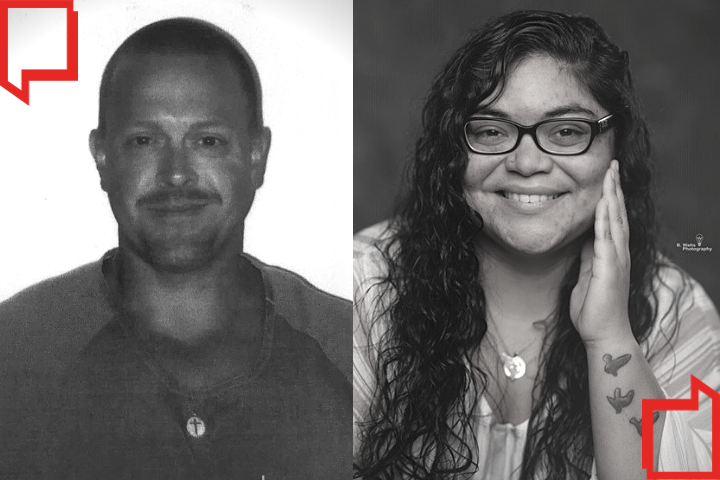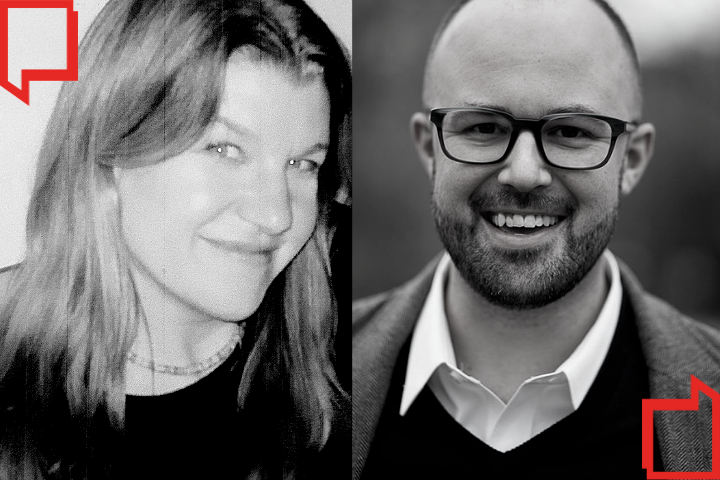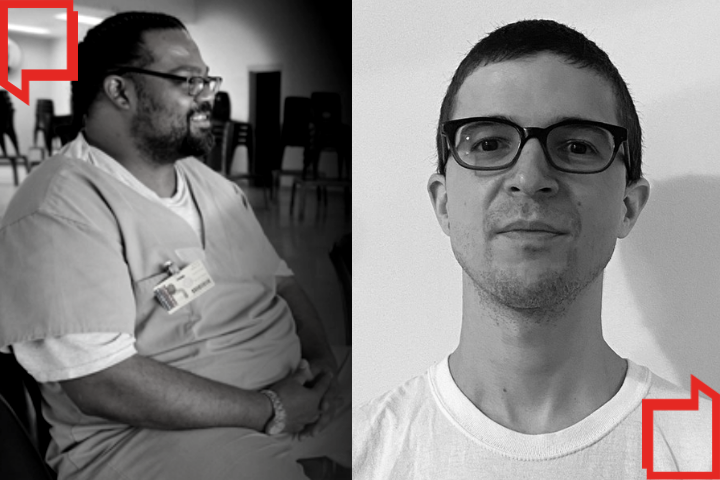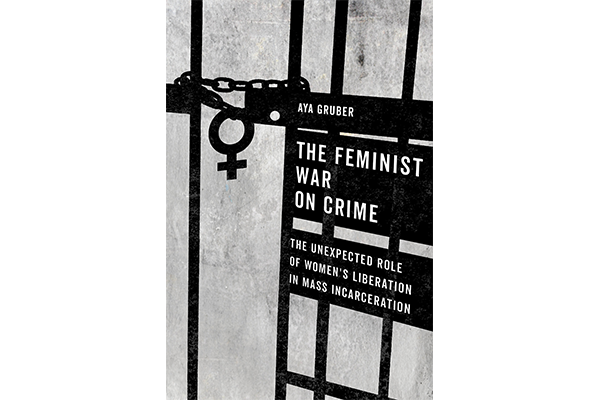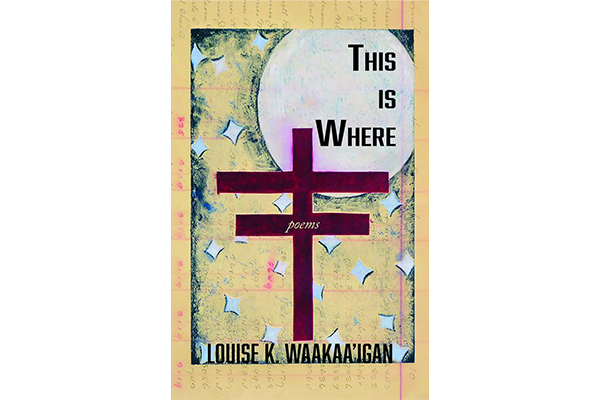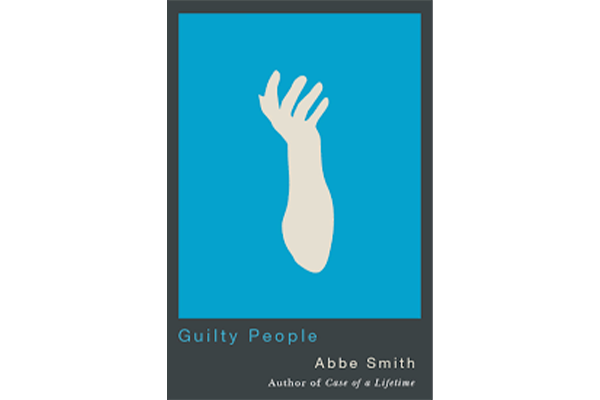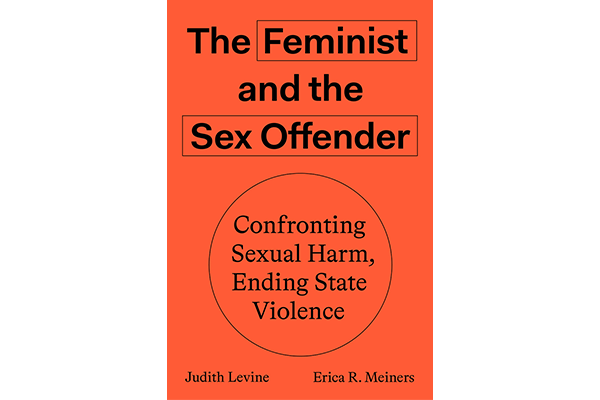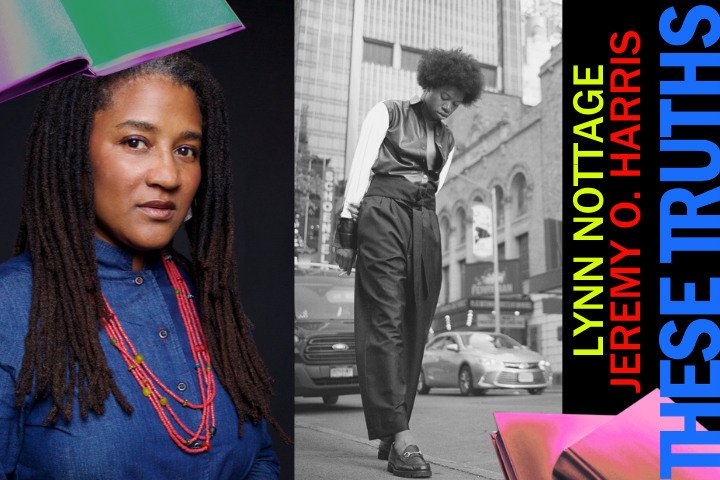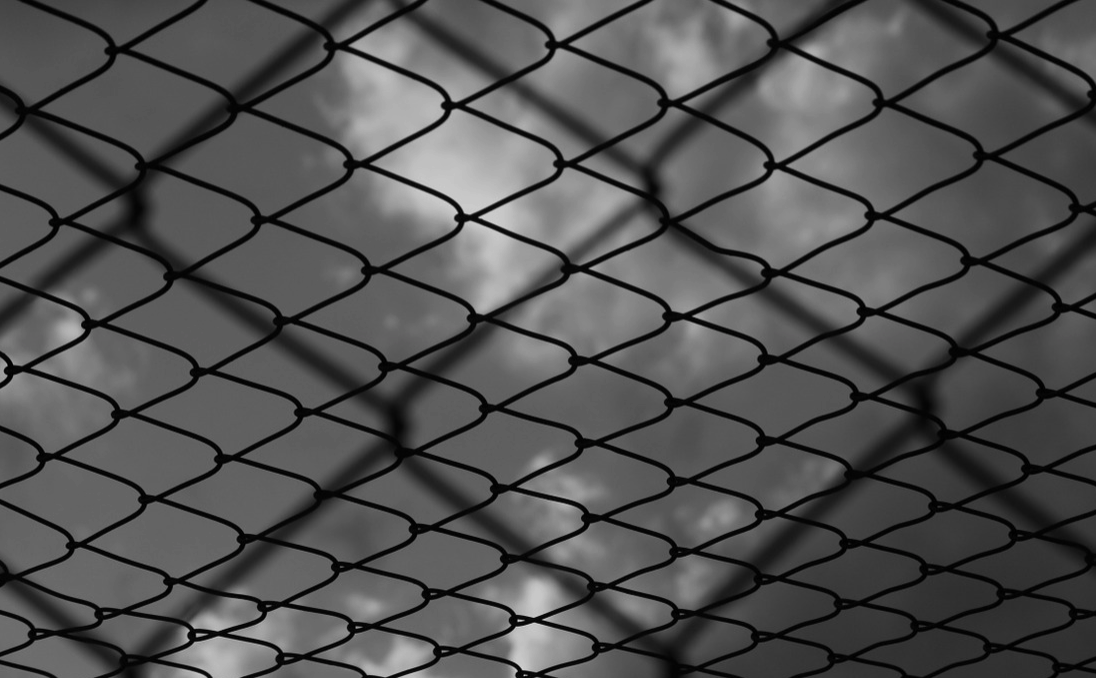Transcript
CAITS MEISSNER: So, first of all: Hi, it’s really fantastic to see you. You look gorgeous. I was saying earlier, I’ve never seen you in your own clothes, so it’s really exciting to see how fly you look and beautiful and with long hair and it’s fantastic. Maybe we can give our listeners some context about how we know each other.
DUNASHA PAYNE: First of all, I want to say thank you for having me. This is fantastic. I’m so honored to be here with you and sharing this space.
It’s unfortunate that we have to do it over this zoom or blue-whatever platform, but you know, it’s the best that we can do. All right, so I’m going to tell you the first time that I met you. The first time that I met you, you had on these hoop earrings. Yeah—I’m going to go there.
You had these hoop gold earrings on, your haircut was short on one side, and then you had this long tail piece on the left side. And I was wondering, like, “What exactly is she doing?” You had this costume jewelry that was really loud, some really cute jeans. You looked really cute, but what grabbed my attention was your costume jewelry and your haircut.
I was wondering, “Who this lady is and what is she doing?” So you were standing there, you were greeting everybody: “Hey, how are you doing? I’m Caits, how are you doing?”
I’m nervous as hell because I don’t know what’s about to happen. And then you start saying, “How do you guys feel about like, just writing, just literally writing what’s on your mind—just writing.”
In my mind I was saying, “I don’t really know if I want to do that. The things that are in my mind right now, I don’t really want to share.” And the way that you facilitated the class, you just made it really comfortable for everyone to get to that comfort level of expressing themselves and sharing out things that were trapped in their head.
So for me, a big one was talking about my daughter. That was very hard for me and I just didn’t do it. And also about my crime, like the actual day of the crime, I never really discussed it. I never talked about it, but the first time that I did was in your class. I wrote it down. And I remember writing it down, very vaguely, and you were like, “No, I want you to keep going with that. Go deeper.”
And then, week after week, I would just keep going deeper and deeper. And at the end, with the finished product, it was just like—my hands are shaking right now—it was so hard because I was like, “Oh my God. I’m traveling to this place. I wanted to forget about it. I don’t want to think about it, but it’s trapped and I need to get some kind of outlet to get it out.”
And I was just—I was freaked out. I was literally freaked out. But what I admire most about you is your ability to make people feel comfortable, right. And to make them feel human.
Because as you know, my name in Bedford Hills was “Payne.” That’s what everyone called me. My last name is Payne. So they would refer to me as Payne, but you did not. You referred to me as my first name, which is Dunasha. And I appreciated that so much because not a lot of people did that. It made me feel human. It made me feel like I was a person and not just a din number and not just Payne.
That was the first time that I met you. And that’s how that experience was for me. And then, you know, now we’re here, which is so amazing. Like what, seven years later?
MEISSNER: I did not expect to get that story today, but I am so moved and touched. I remember very, very well the day that you shared that piece. And there was never a prompt to share about your crime; that wasn’t something that we asked people to do. So you were ready to go there.
And I remember how much support you also got in that room. And I remember there were tears. And I remember really moving through that together. And so you made a huge impact on me too. So it’s incredibly special to get to be in this context on the same side of the wall with your daughter present with you every day and get to share about that.
And I could brag about you: you’re a fantastic writer and communicator. You’re a fantastic actor, a fantastic singer. And you also brought so much life to that room. You have such a sunny spirit and you helped facilitate other people to feel like they were also supported to share their stories. You were a big cheerleader for others, so, thank you for that gift of reflection. I’m also holding back a lot of emotion right here in my heart. It’s welling right up. And, uh, woo!
PAYNE: It’s so crazy cause I’m like—you know how you feel that little ball in your throat, when it starts to get really hard and you can’t swallow and you know you’re about to cry? I felt like that. And I was like, you know what? Just take it back. Just take a seat. And just think about the positive part of it.
It changed my life. It allowed me to—how can I say this without being mushy—it allowed me to break those chains that I had that were holding onto me. And I could not figure out how to get from bondage. I could not figure out how to be free. And that’s real. That’s so real and so honest. And I’m just going to give it to you straight: I just felt trapped in my crime. I felt trapped and I didn’t know how to get out. And I didn’t know who to talk to because you don’t want to talk to everybody about your situations. You don’t want to indulge in those kinds of conversations.
There’s a lot of trauma, a lot of hurt there for me. You made it easy to access that part of me. And I swear to God, I’m not lying: now, to this day, it’s much easier for me to talk about my situation about my crime. I don’t feel that feeling of, “Oh, I can’t do it. I can’t do it. I can’t do it.”
No. I don’t feel like that. It’s my story, and I need to get it out there and I need to feel comfortable in my own shoes. And I just want to say: I swear to God, Caits, I really appreciate you, and what you brought to the table for me and for thousands of women in that prison that came in and out.
You know what I mean? Like, you’re dope, man. For real, you’re dope. I’m just going to say that.
MEISSNER: You and all the other women in our class changed my life pretty profoundly—as you know, it’s become the center of my life, this work now. So it’s very mutual and I wasn’t expecting to have this moment, but I’m so grateful for it.
And I could stay here forever, of course, because it feels wonderful, but I want to also talk about the content of our podcasts. But also I want to congratulate you on your role at Drama Club and hoped you could share a little bit about that, because now you’re the facilitator.
PAYNE: Oh my God. That’s so scary. Yeah—I am a program coordinator for Drama Club and I’m also supervisor, which is pretty cool. I deal with at-risk youth that were formerly incarcerated or incarcerated individuals or individuals that have been impacted by the justice system. What that basically means is I go into different facilities, like Acorn, Horizons, Rikers Island, different places, detention centers, and I teach them improv, which is an acting technique, and it helps them navigate through real life situations. And one of our big rules is you’re staying, so you accept the offer that is given to you and you just go with it. And in life, it’s hard to just go with the flow. It’s very easy to resist and be confrontational.
So what we try to teach is, like, “No. Just accept it, own it. And deal with it and figure out the best possible way that you can handle the situation.”
I realized with my situation of my incarceration, that I made a lot of mistakes. And I just want the young people from our community to learn from my mistakes so they don’t have to go through the same things that I went through. Of course, everyone’s walk is different and their situations are different, but I can help somebody not go through domestic violence or I can help someone not go through the prison system, just by me interacting with them and growing that bond and mentoring them.
So with my role, that’s what I basically do.
MEISSNER: I love to hear that. You know, I used to also teach young women on Rikers Island, then I used to teach young men at Crossroads. Particularly the young women on Rikers—I just think, man, what if they had you, instead of me, I think it would have been so powerful.
I know what they get from your spirit and from your teachings and from your wisdom. I know that it’s profound. So thank you. So beautiful to see.
PAYNE: Thank you so much.
MEISSNER: It’s true. It’s just true. So moving into the heart of this and thinking about, you know, young people’s experience through the walls and thinking about writing about your daughter. That took time for you to talk about, but then once you did, we heard a lot about Jayla. I want to know, what were some of the biggest changes for you when you started parenting from prison? What was that journey like? How old was Jayla? How old were you? Because you were a young parent, no?
PAYNE: Yeah. Okay. Oh man. I’m going to tell you right now. This is so crazy because this is a confirmation for me. Last night in rehearsal, I directed a scene. And I had two actors play myself and my daughter. This is literally last night. And it went into some really heavy stuff. A lot of things came up that I was feeling at the time. And it’s just so crazy that now you’re asking me a similar question.
I left Jayla when she was three. I was 21. And I didn’t know how to be a parent. I didn’t know how to be a parent, even before my incarceration. I always had those motherly instincts. That’s just something that I had, but I didn’t know how to do it right. You know what I’m saying? Like, what is the right way? You know?
But then, once I was incarcerated, I was like, “Oh my God, I don’t know what I’m going to do. I don’t know how I’m going to even tell her that I’m going to prison. I don’t even know how I’m going to tell her about my crime.”
And even still to this day, she does not know exactly what I’ve done. What I was able to do was I was able to explain to her at a certain age, “Mommy made a mistake and I’m on a grown-up time out.” That’s what I told her. I said, “I’m on a grown-up time out, and that means that I got in trouble for something that I was not supposed to do. Just like when you are in trouble, you go on time out. It’s the same thing with mommy. Mommy is on an adult time out and I cannot come home right now.”
That’s basically what I told her and she kind of understood. She didn’t handle it pretty well. She’s just like, “Well, who can I talk to so that you can come home because you’re not bad. I know that you’re a good mom, so you could just come home.”
And it was so crazy because last night that exact line came out in a scene and I didn’t prompt the person or nothing. It was just like improv, completely.
Jayla had a hard time adjusting to me being absent in her life, and she suffered from connecting emotionally with her parents—with myself and her father. She would just cry for everything. Like you drop a pen, she’s crying. You close a book and she’s reading it, she’s crying or like any little things. The only way for her to express herself was through crying.
And I had to realize that the best way for me to be a mother to her is to comfort her and to meet her where she’s at. Right. So I can’t tell her, “You’re not crying for a reason. Stop crying.”
That’s what you would tell your child if she was home, or he, “Hey, why are you crying? Cause there’s no reason for you to be crying, let’s just do XYZ.”
And this situation was very delicate because there’s a lot of trauma behind it and a lot of behavioral issues as well, things that she could not identify with. You know, I’m not a professional either. I’m just a mom, you know? And so I just tried to do the best that I can do, with what I was given.
She would come—you know, I would just hold her. That’s all I could do. And if she wanted me to do her hair, I would do her hair. Or if she wanted to read a book, we would go read books, or if she wanted to paint. And one thing that she really loved that I did—and I would always constantly do it: I worked in the visiting room. So in the children’s center, I would take pictures with all the Disney bulletins that we had. We would have, like, Olaf and Frozen. We had that for months. And every time I went to work, I would take a picture with Olaf and I would send it off to her. So on the actual Polaroid, I would put “Olaf and Jayla” and then I would put “Mommy loves you.”
And then I would put the year and the day and the time. And then I would write her a letter and put glitter all over it. It was just things that she would like. And she kept those pictures. She kept those letters.
That was the best way that I can parent. And I didn’t try to do anything extra. I didn’t try to reprimand her because like, “I’m your mother and you’re going to listen.”
No, it wasn’t like that. It was just based off of: I’m going to explain to you what I require and what I expect from you as far as my expectations of you as my daughter. But I’m also going to handle that with a kiddy glove because you don’t really understand yet. You’re too young to understand. So that’s where I was at with that.
MEISSNER: Wow. I really admire your approach, Dunasha. I had this experience once at Bedford in the visiting room, the waiting trailer. When I was leaving—I think from getting fingerprinting done—there was a dad and his kid in there, who was maybe five or six. And, you know, he was chatting with me. He clearly needed someone to talk to and he didn’t know that my role was, you know, Creative Writing Teacher. He just saw me as somebody else in plain clothes. Right?
And he pointed to his son who was playing with the toys and said, “He thinks his mom is training to be a police officer.” And that story really stuck with me and broke my heart for a lot of reasons. And I don’t mean to say that his response was bad. Who’s to say? I wouldn’t know what to do in this scenario. But I think that you being able to translate to your daughter in terms she could understand what was happening is pretty impressive.
So I just wanted to give you that feedback. I’m like, wow. That’s pretty meaningful.
PAYNE: Thank you, thank you.
MEISSNER: I’m curious, knowing that she was three and young through those years: What was it like when she wasn’t visiting? Were you able to talk on the phone? How do you talk on the phone with a three-year-old? How did you maintain that connection? What were you up against in that scenario?
PAYNE: I thought about this time and time again, and I knew that this probably would come up, but I just figured, maybe I should lie. Right. That’s what I was thinking in my mind. I’m going to be honest, I said to myself, “Maybe I should just lie and not tell the truth.”
One: that’s not going to do you or I justice. Right. I just figured, let me just tell the truth. When Jayla was really young, when I was going through the system, I didn’t really communicate with her. I didn’t. Cause I didn’t know how, and I didn’t know what to say. And I just felt like I didn’t want to touch it because I was just very afraid of it. I was afraid and I didn’t know how to handle it. That’s just being honest. And, when she started to get a little older—when she was like, in second grade, I felt more comfortable with having the phone conversations on the phone. I would have the basic conversations like, “Oh, hey, what did you eat? How was school?” That kind of thing.
But when it came to talking about stuff, I could not handle it. And I would go on the visiting floor and I would see her and that’d be cool. And then when I came off the visiting floor, I would just forget about her completely. Like I didn’t have a daughter. I would erase her from my mind.
And the reason why I did that was because I could not handle the fact that I had a child in the world that I could not protect. I could not do nothing for her if she was hurt, I could not go, I could not help her. I could not feed her. I could not hold her. I could not kiss her. I couldn’t do anything for her.
She was holding onto my memory and I wasn’t holding on to hers. And that was the only way that I was able to do my time successfully, because if I was to think about Jayla every single day, every single minute, I would drive myself crazy. And I know that my judgment would have been clouded.
Like, I’m inside of a prison. I don’t know who’s here to hurt me. I don’t know who’s here to do what, and it’s just a lot for me. And I could not handle it. I didn’t know how. And I didn’t want to. I wanted to get through my time successfully and come home to her and healthy and strong.
And I knew that I couldn’t do that by me thinking about her every single day, all day, and worrying about her. I couldn’t do it. I couldn’t do it. So I just, I blocked her out when I wasn’t on the visiting floor. No one knew I had a kid. When somebody would find out when they would see me on the visiting floor with her, they would say, “Oh who is that little girl? Is that your sister?” I’m like, “No, that’s my daughter. “
No one knew. And I was going through my time and the years just kept going by and no one knew I had a kid.
MEISSNER: That makes a lot of sense. Thank you for sharing so honestly—and painfully, I imagine. You did talk about Jayla in our class. So I’m wondering if there was a time or space when that started to shift for you.
PAYNE: Yeah. So what started to happen was I felt comfortable with you cause I knew that you were not going to harm me or judge me. You, as my facilitator, made me feel comfortable enough to share with you.
Cause I knew that you were not going to harm me and I felt comfortable enough to express those feelings to you. And I could be vulnerable with you cause I felt safe in that environment. And that space that you created; you established a safer environment where I felt like I can be myself and I can let all of my shit down. All my baggage—I can leave it at the front door. I don’t have to hold it in my arms. That’s where it started to shift. I was able to talk to you about my daughter, and me seeing her, and her birthday’s coming up—or little events in her life.
But as soon as I walked out of your classroom, that was gone; it was back to shield. And no one knows that I have a child. I remember confidentiality was a really strong and important rule. And a lot of the women respected that. So I felt safe with their stuff and I appreciated them for not sharing none of my stuff.
That was pretty cool for me. So that was the shift.
MEISSNER: That’s really wonderful to know. And I think, you know, having containers in any space often allows us to do that. You know, not just in prison, it makes sense—but specifically there with everything that you’ve up against.
So, one of the questions that our producer Nicolette developed, which also speaks about the safe space of arts programs: she mentioned that you were involved with Rehabilitation Through the Arts, not only through my class, which is where I taught, but also through the theater program, where I got to jump in in the last five days of production and be the only non-incarcerated woman acting in the show.
I was playing Eveline and I couldn’t stop smiling. And they’d say, “Caits, you can’t sing that song smiling.” And I had to be mentored by all of you because you actually knew how to act. And here I was, so nervous. And you played Glinda the Good Witch and you had a pretty starring role. You’re fantastic, really, really captivating.
And, thinking about these kinds of experiences, not just the creative writing room, but also the theater space, broadly the impact of that. But also, did that facilitate anything in terms of your parenting. And of course there was a big moment that happened that your daughter got to participate in.
PAYNE: Yeah. I played a lot of roles in that play. And the reason why Glinda was a strong role for me was because I wanted to be a nice mom. You know, growing up, people are like, “You’re going to be the strict parent and you’re going to be the softie.” And I just felt like I was going to be the nice parent, the sweet parent, the bubbly parent, the you-could-run-all-over-me kind of parent. That’s how I felt.
Though with Glenda, it was just so cute because she was all sparkly and soft and cute. And she was just great, you know? And my daughter was actually sitting in the audience, I was like, “Oh my God, she’s going to see me in this sparkly, beautiful dress. And I’m going to be smiling and I’m not going to be sad and I’m just going to be happy.”
So I walked down the stage, and they whipped open the curtain. Then you just see me come out and I’m smiling. I’m smiling from ear to ear. And then I just started singing “If You Believe.” And my daughter was pointing at me. She kept pointing, pointing—and all I felt was just pure joy. At that moment, I felt pure joy because I’m like, “I’m doing this for her. This is who I’m doing this for. I’m making her happy and she can see me literally in person. And she doesn’t have to see me in these green clothes. She can see me in this sparkly, beautiful dress and hold on to that.”
It was emotional for me. It was emotional for her. She was in tears. My dad was also there. My aunt was there and just seeing me, I guess, in the costume—I think it was the costume. It was the costume because it was like, “We see you differently. You look so beautiful. You look like an angel. There’s like this light above you, then your clothes are sparkling and you have this magical wand, and then you’re singing to the audience and pointing.”
It was just great, you know.
MEISSNER: Like every little girl’s fantasy—and in that outfit, that was something I would love as a child.
And I remember, you know, a really profound moment. I knew who your daughter was in the audience. For context, for listeners, we were in the gymnasium of the prison, onstage. And I think it was the first time Bedford Hills had ever let family and friends come to see the play. So was a really important moment.
And for women who had acted for many years in the place, this was the first experience of that. We had, in the morning, performed for all women in the prison, looking out at a sea of women in their greens, state greens. And then at night, we were looking at people’s friends and family and people on the outside.
And I remember watching onstage, even though I was supposed to be acting and looking at everyone, I was watching your daughter. I think she was sitting in your dad’s lap or someone in your family’s lap. And we were singing the words to “Home.”
And I just had this out-of-body moment because I was in a reverse kind of position from how I usually was in the prison. I was now next to everybody who was incarcerated, standing, undistinguishable to the people who didn’t know me in the audience, and looking out to people.
And I want to talk about that song and singing that song because I really felt moved by, particularly, knowing that that was your daughter and knowing you. And I couldn’t really show it. Obviously I had to keep singing, but thinking about that particular song “Home”—to which the lyrics are, ”When I think of home, I think of a place with love overflowing. I wish I could go back there with the things I’ve been knowing.”
The song to sing to a prison audience was, I mean—it makes me emotional thinking about it.
Maybe we can talk about both singing to other women you were incarcerated with, which felt really profound to me at the time, and then also singing to your family and what that was.
PAYNE: Oh God. I’m like a ball of tears now; I’m trying to hold them back.
But that was so hard. I just think that it was most hard for me because we couldn’t go home. You know, we were not able to go home. We had to stay and we’re singing it. We’re saying, “When we think of home.”
You think of all the things you would have done different and the things you’ve done wrong. And you’re looking at somebody that may not ever come home. And that may just be here forever. You know what I’m saying? Or your forever, whatever forever that looks like. And it’s just like, you can’t say you’re coming home tomorrow. And then you think about the things you’ve been knowing. Like, if I knew what I know now, I probably would’ve never been here singing this song with you at all.
I know I’m sounding like I’m babbling, but it’s like: when I think of home, I think of all of these happy things, these stressful things, but I’d rather that than this home. I’d rather that. And that was hard to sing to each other. Cause we had to rehearse it over and over and over. It felt like torture in a way, cause you’re like, “Well, we’re not going home. We’re going to do a show inside of a gymnasium with officers all around you. You’re not really going home.”
You know what I’m saying? And then the flip side of that is like, you’re an audience, you know, like it gets my family every single time.
That’s why I don’t really talk about this part. It’s the first time I’ve talked about this since I did the play. I’m going to be honest with you. I’ve never talked about this. That’s probably why I’m crying. Cause I have not, I never released it.
So I remember seeing my daughter in the audience, and she had on his fur jacket and this little cute skirt—a little Tutu skirt—and my dad was there and my aunt was there.
And all you see on stage is us forming a line, a straight line across the stage. No one knows what’s happening, but guess what? The actors know what’s happening. And you hear us. You know, we had the instrumental and Mike is playing and they’re doing their thing. Michael and Phyllis were on the keyboard and they’re just playing at first, just the instrumental. And then all the music just stops. And then we start as an ensemble. And we start off and we’re like, [sings] “Oh when I think of home, I think of a place. I wish I was home. I wish I was back there with the things I’ve been knowing.”
And then right there at that part, everyone’s snots and boogers. And you cannot hear anything else after that. I swear to God, it sounded like everyone was on the floor, bawling, crying. Cause the first line, you got out—we all got it out, and, you know, we’re smiling.
And then after that we were no more good. The audience was crying. They were trying to sing along. Everybody’s standing up, they’re clapping. You can’t even hear them singing anymore. But we knew that. Ultimately, we weren’t going home with our families and they knew too. But that moment that we all shared together was like synchronicity.
Right. We were all in sync at one time. Even if I had an issue with the person standing next to me, and I probably didn’t like her for whatever reason, I wanted to hug and kiss her right there. You know what I mean? And just say, “This is just our reality and we’re going to be okay. But we’re going to get through this.”
So, the first two lines you heard. And after that it was nothing else. That’s what I remember. I’m just going to be honest.
MEISSNER: Wow. That was one of the most profound experiences of my life. And it can sound like being a tourist in the space. I’m aware of that. But it was because this is, what, two, three years into working with half the cast in a different space where we’re talking about our lives. So the relationships were deep at that point. So it was incredibly meaningful to share that.
I think I stopped teaching at Bedford soon after that play and, and it was really painful to not teach there anymore. It was heartbreaking to leave everybody behind. And so I watched this Huffington post video that they made of the play like a million times, because I was seeing you and Mary and all the women that I really cared about deeply.
Whether they were talking in the video or not on stage, I was revisiting it just to be back in the presence of people that I missed. And you’re featured very prominently in this video. And there’s a really fantastic interview of you where you talk about how you were coming home two days before Christmas, and how you were planning on jumping out of a box for your daughter as a surprise Christmas present, and you made, like, a, whoo! Surprise!
PAYNE: Yes, I did. Yes. Tada!
MEISSNER: Did you do that? And what was your experience of being reunited like?
PAYNE: I’m going to tell you right now, as a disclaimer, I have that on video. I have it on video, when I walked in the door and she had no idea what was happening. I literally have it on video. And I have the video of me walking out the door of the prison. I have that too.
So first and foremost, that was really cool, how I was like, “I’m coming home around Christmas and I want to pop out the box, and all of that.” But let me tell you what happened.
Jayla saw it. She would watch that interview. And I didn’t think it was going to go viral like that. She was watching that video every single day. Do you hear what I’m telling you?
MEISSNER: Me and Jayla! Jayla more often. But me and Jayla!
PAYNE: I’m telling you she was watching the interview and I was like, dang. She was like, “Yep. I know you’re going to come home. And I know you’re gonna come out and pop out of the box. I know what you’re going to do. So I’m expecting this big box in the living room on Christmas.”
So I was like, damn, I can’t do that. I want it to be a surprise and I don’t want her to know what her surprise is. Cause as soon as she sees the box, she’s going to instantly know it’s me.
So what we did was—it was my mom, it was me, it was my sisters, it was my father, it was her father, her other grandmother from my father’s side, her cousins. It was the whole family in the house at one time. In the living room, you see Jayla, you see my mother and you see her little brother and her extended family on the other side. And my mom was just talking to her, saying, “Hey,” you know, “I’m going on vacation. I wanted to bring a Christmas present to you.”
So Jayla was like, “Oh ma, I’m so happy.” And all these things. She’s being all mushy, knowing she does not know that I’m in the back room at all. So I started walking out; you see me walking and then you hear someone say, “Hi, Jayla!” Now, it’s my sister, but she’s so excited because she doesn’t normally see all of my family at the same time.
So she sees my sister and everybody’s like, “Hi, Jayla!” And then I go, “Hi, baby!” And she looks up and she goes, “I didn’t know! Oh, Mommy!”
And it was just like, after that, she was just snots and boogers. I was snots and boogers. She was like, ah! And you see her face like that. And she held that for so long. She could not believe it. And she’s touching my face the whole time. Like, “Are you really here?” You know, she kept doing that. We had dinner. She did not let go. She just stayed on my lap the whole time. So that’s what we did. We could not do the box.
MEISSNER: My cheeks hurt from smiling. That’s beautiful. I have another memory on the tip of my brain, of you talking about some other gifts for her that involved bracelets, or a memory that involves something with bracelets? I feel like it was something about you thinking about telling your daughter that handcuffs were bracelets. Does this ring a bell?
PAYNE: Okay. Okay. So, yes, I know exactly what you’re talking about. So what happened was my great-grandmother died. I went to the funeral and my daughter’s sitting there. My mother, my nephew, and my sister. They did not know that I was coming to the funeral. So I arrived and I have on my handcuffs and I’m handcuffed to the front, not to the back. I’m handcuffed to the front. So I had on a tan jacket, and I tried to put my jacket down like this. I’m pulling my jacket so that you can’t see my handcuffs, but mind you, I have a chain around my waist. And I have the shackles; I had the whole nine yards on.
And Jayla is like, “Oh, hey mom.” And, you know, I give her a hug and I have to give her a kiss and all of that. And she’s like, “Well, what’s those?” And I was like, “Oh, those are mommy’s silver bracelets.” I didn’t know what to say, you know. I’m like, shit, those are mommy’s silver bracelets.
And then she’s looking at me, she’s like, “I want some bracelets.” In my mind, I’m saying, “Jesus Christ, you don’t even understand what this really is. But yeah, these are mommy’s silver bracelets.” And I was just really god with coming up with shit on the fly.
MEISSNER: That’s why you teach improv now.
PAYNE: I think so! I think that’s exactly what it is because I come up with it literally on the fly. Like, what would make you say silver bracelets? I don’t know, but I said it, I literally said “silver bracelets” and she was like, “Oh, I want some silver bracelets.” And I was like, “Oh my God.” Yeah. It was my grandmother’s funeral.
MEISSNER: I’m so sorry. I thought I was recalling a happy memory, and took us right into something really difficult. Wow. So tell me a little bit about how it’s been feeling for the past year or so that you’ve been able to be mom at home.
PAYNE: Oh man. So it’s been—I’m not going to even lie. It’s been a roller coaster, you know. You have all of these thoughts in your mind, like, yeah, it’s going to be like this and we’re going to do this and this is how it’s going to go. And it does not go like that. Okay. It doesn’t go as you planned. And when you tell God your plans, he laughs. Just letting you know, he really does laugh. Just like you’re laughing right now, because they laugh. I’m telling you.
I came home. I’m like, “Yeah, I’m going to have this beautiful place. I’m gonna have this apartment. I’m going to get Jayla right away.” All of these things. Okay. I came home; I started working three jobs.
It was like a mess. I’m still developing that bond with her and doing the school thing. The parent-teacher conference thing. The teachers getting to know me cause I’ve been not there for her whole life in school. So they’re like, “Oh, wow! Who’s this? Oh, this is mom. Oh, hey mom!” You know?
And then also just learning her again. Like, “Oh, I remember you used to like this!”
“No mom, I don’t like that anymore.”
And now she’s becoming a young lady, so things are definitely changing, and especially they’re changing between us. She’s developing into herself. She’s not a little baby anymore. I can’t say, “Oh, my little baby!” It’s like, “No mom, I’m in junior high school and can we just go and get these sneakers?”
It’s just not how I planned it to be at all. You know, like picking out down to things like bra sizes. I didn’t even expect this. Like what are we doing right now? I want to go to the park and hang out and go—
“No, I want to play my game and I want you to get me a cell phone.”
That kind of thing. That’s what’s happening. So, I got the cell phone. And she was really into Jojo Siwa for a little while. Took her to the concert in Connecticut, did that.
Her birthday just passed. So what we did was I got her some sneakers that were customized with her name on it. She had this silver and black dress, her hair was all done up. She had a crown on, a black fur jacket. She looked really dapper. And then we threw her a surprise dinner at Lumix; Lumix is a hibachi restaurant, where they cook the food in front of it. It was so dope. The food is really good. They did this whole show for us. It was so amazing. Then they brought the cake out. We had the confetti balloons, which we popped and it was confetti everywhere. And she enjoyed it. I got her a bike.
She really enjoyed her birthday, but I don’t want to talk about all the roses because there are some thorns. Just going to be honest, you know? And we struggle sometimes with the talking back, or, “I don’t have to do this and I don’t want to.”
It’s hard molding. I’m molding her back to how I want her to be, and the respect level and all of that. She has the utmost respect for me but she’s becoming a young lady; now it’s about to be high school and then it’s going to be college. So those hormones are starting to go a little haywire.
I’m like, “Jayla, can you go and grab—”
“What?”
“No, it’s not, ‘What?’. No, no no. It’s, ‘What did you say mom?’ Or, ‘I didn’t hear you; can you repeat that?’”
It was so crazy, because I was like, “I can’t wait. I’m not going to miss much. When she mostly needs me, like junior high school and the menstrual and the boys and all of that, the puberty, I’m going to be there to help her.” And, girl. I’m telling you.
I’m just like, “Okay, when is this part going to be over?” Because this is really aggravating; it’s really aggravating. But I love her. She’s great. She’s a good kid, Honor Roll student. No complaints. She’s a little bit talkative, but I think we know where she gets that from. Diarrhea of the mouth.
She sings. When I first came home, we did a documentary with RTA and we were singing; Jayla and I were singing. So when that comes out, you’ll definitely get first dibs on that.
MEISSNER: I can’t wait. Oh, I love to hear all this. What a gift. Dunasha—thank you. But no, really. You went there today and you didn’t have to; you could’ve stopped at any moment.
You could have been like, “Listen, Caits it’s too much.” But I think that something that you’ve consistently modeled in the time that I’ve known you is a journey of vulnerability and how to really model for other people that when we really own our story and experiences, and we’re honest about it, it opens space for the people that get to do that, too.
I saw you do that with some of your close friends who came into the room. Arms crossed, sour face. “I don’t write. Screw this. I’m not doing this. I’m going to leave.” And then, you know, ha ha. They didn’t leave. And you were a huge part of that. That was your close friend and you were like, “Listen, this is what we do in here. Welcome. Come on. Let me show you how.”
And so, you lead through that and here you are still leading through that. So I can’t thank you enough. It’s been an incredibly special conversation.
PAYNE: Thank you so much for having me. I’m so excited. I would love to come back. I don’t know how that works, but like, this is amazing. This is great.

